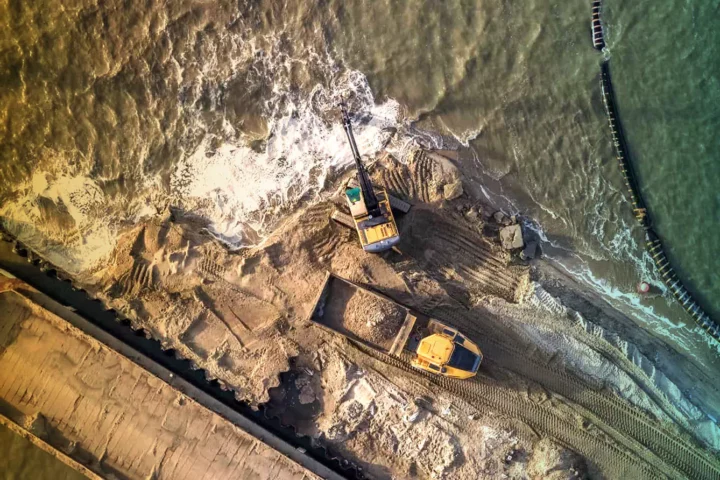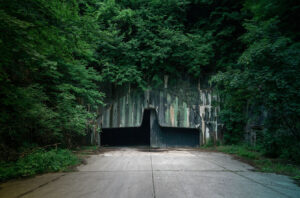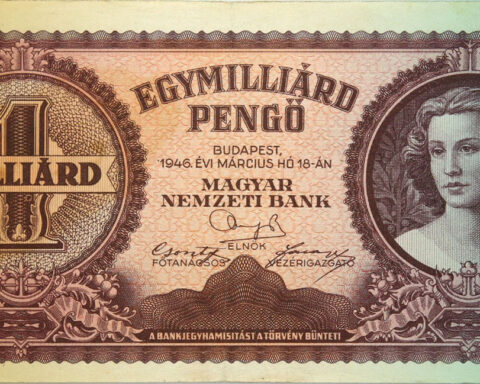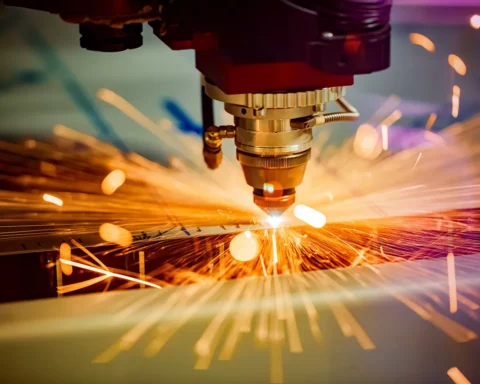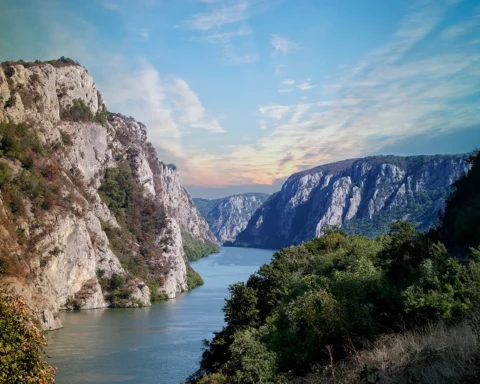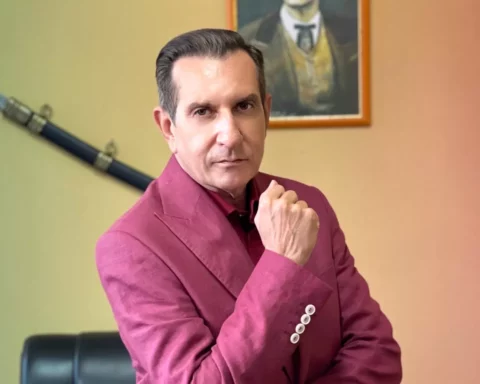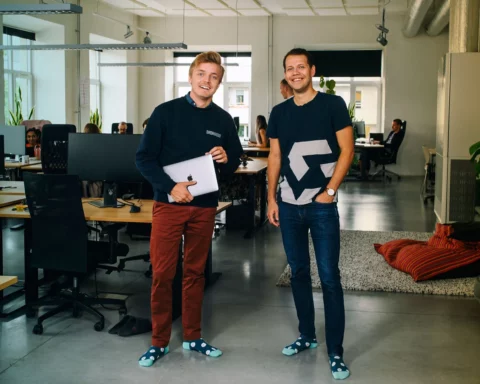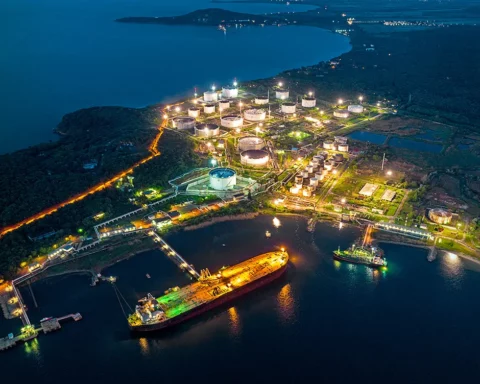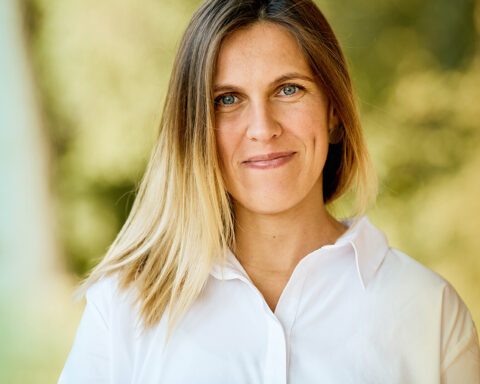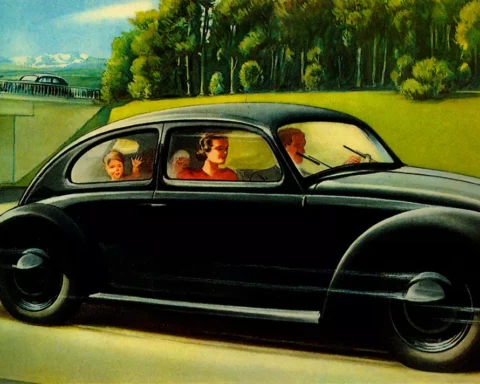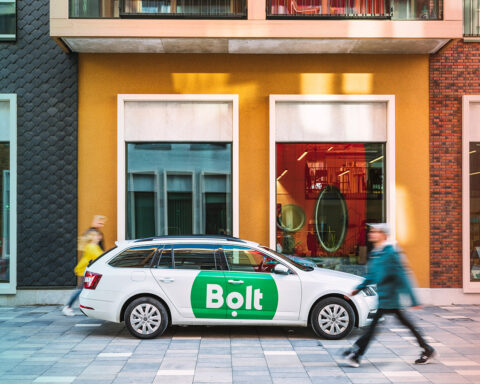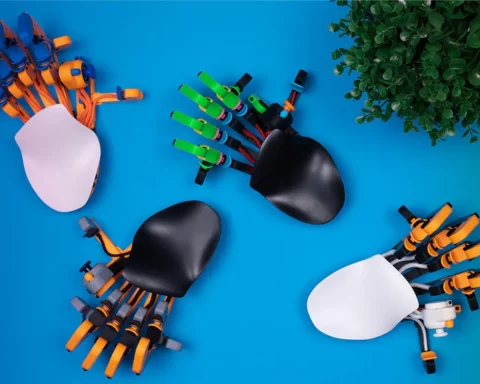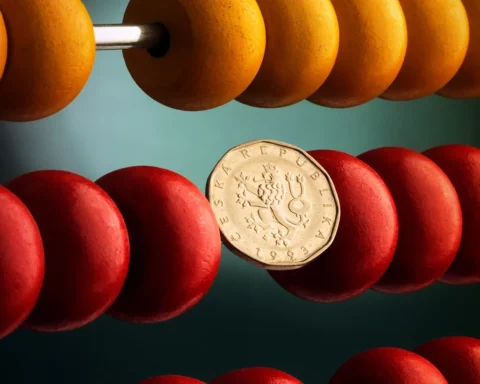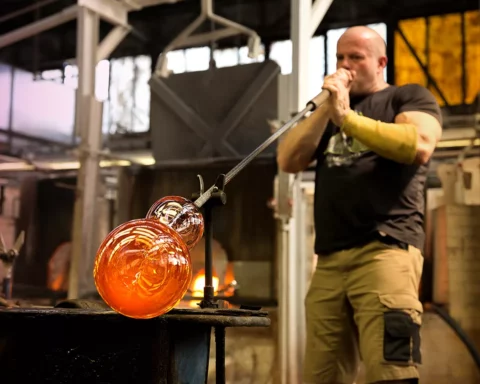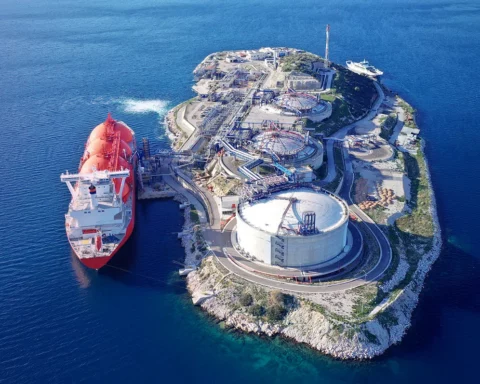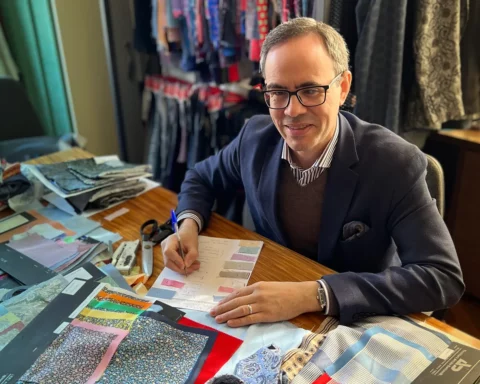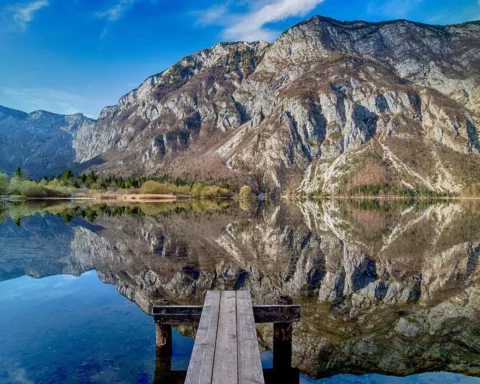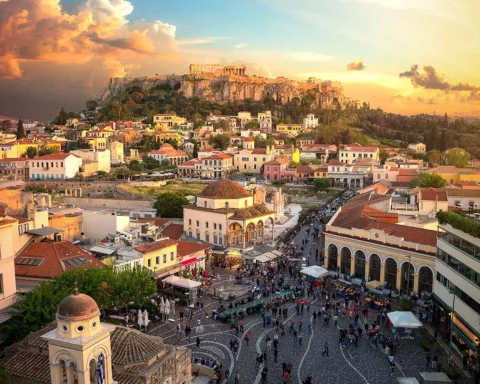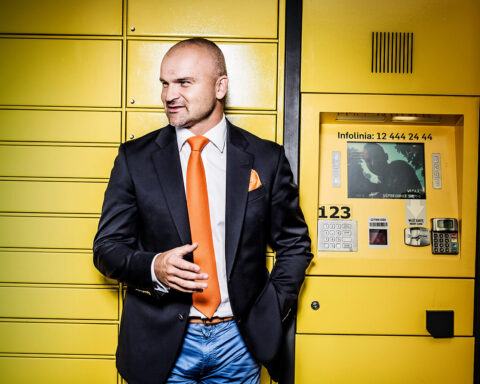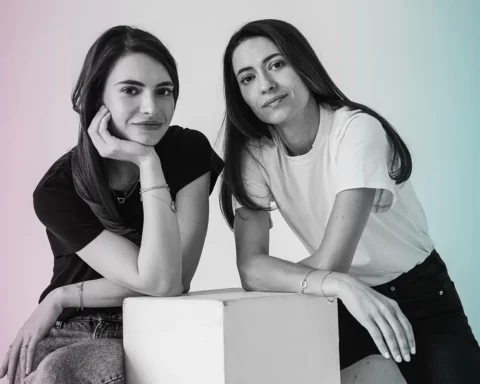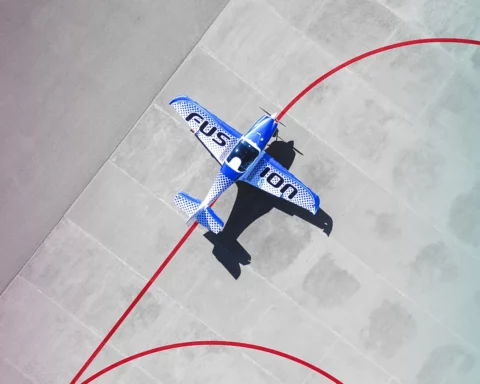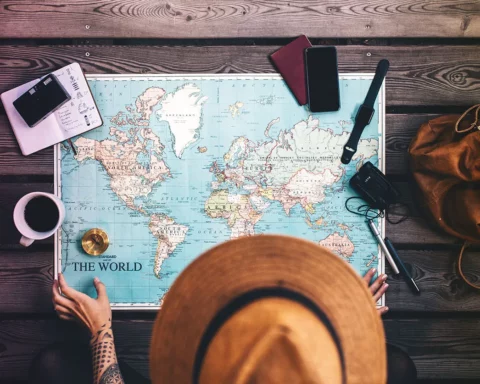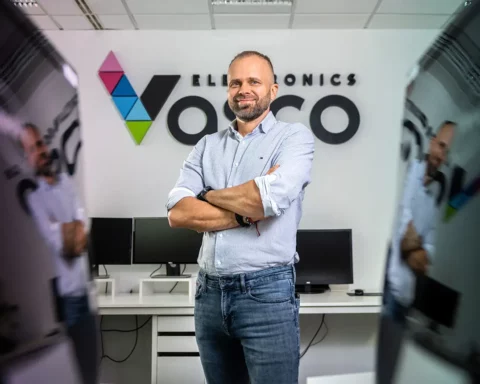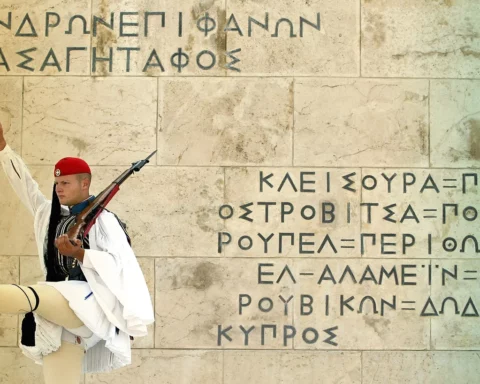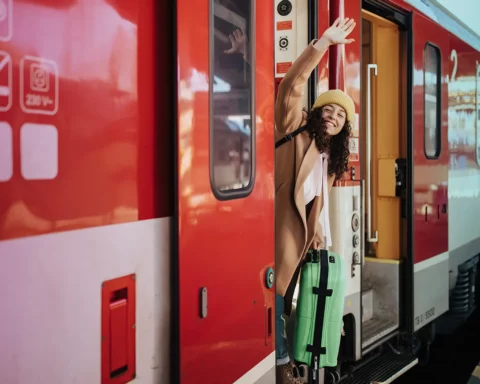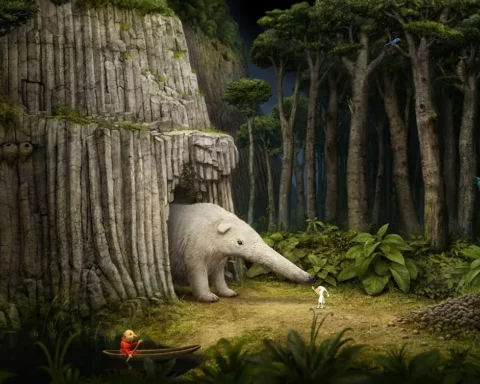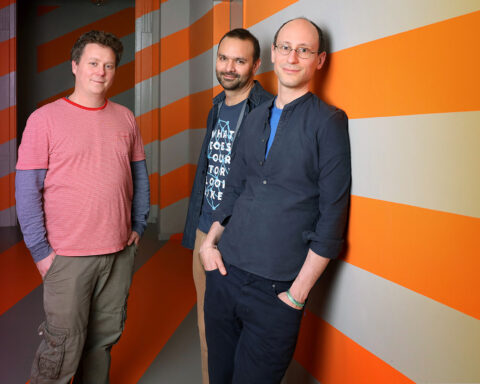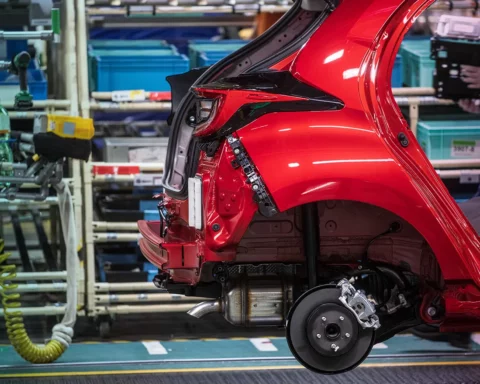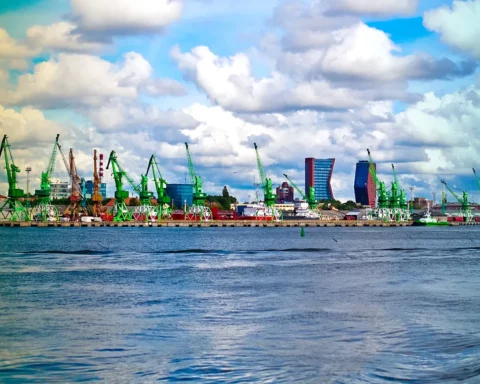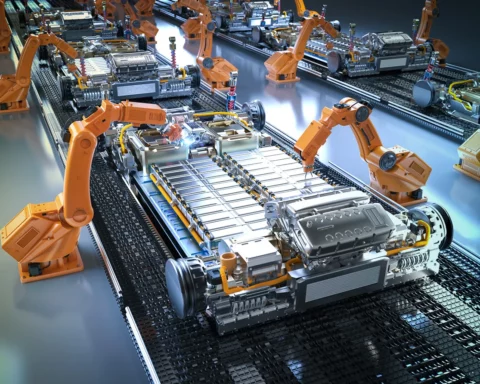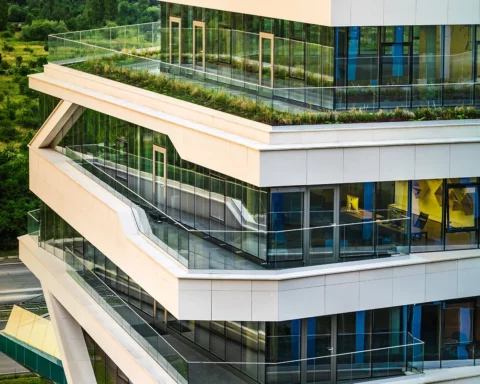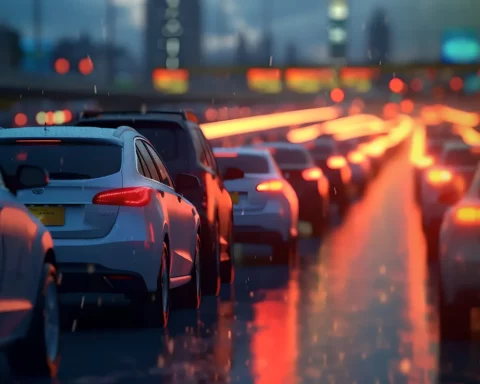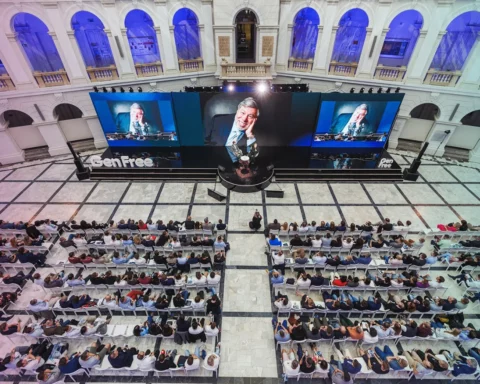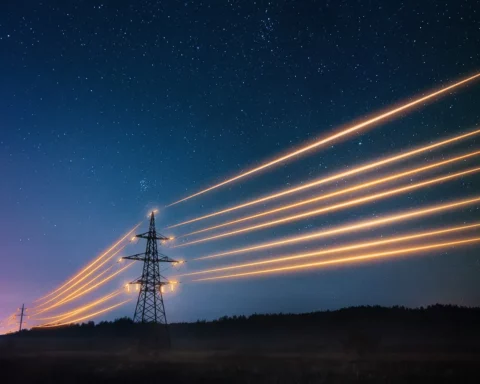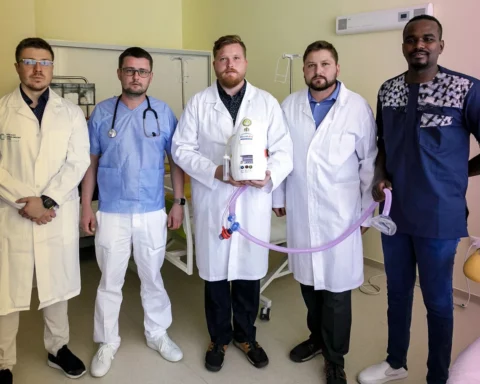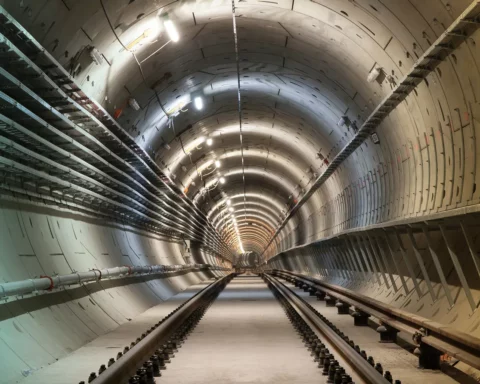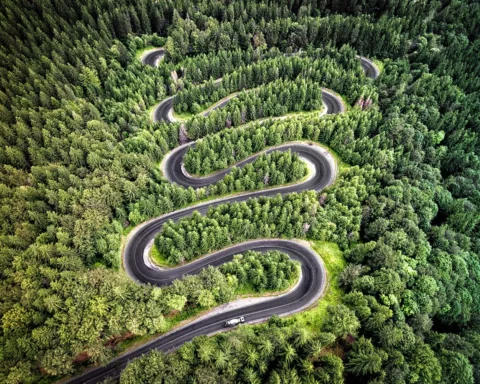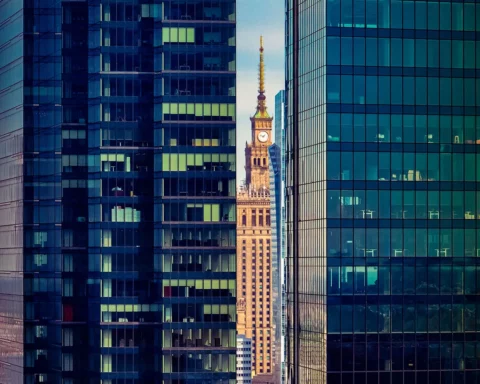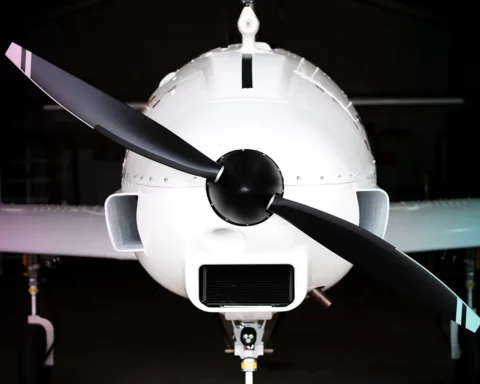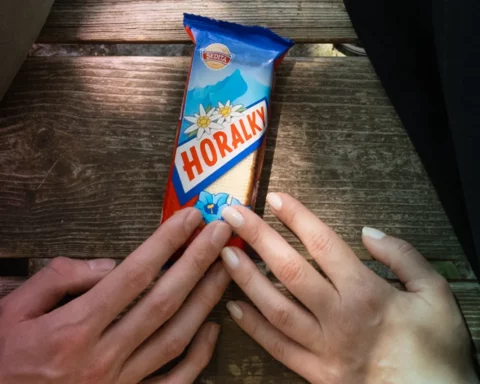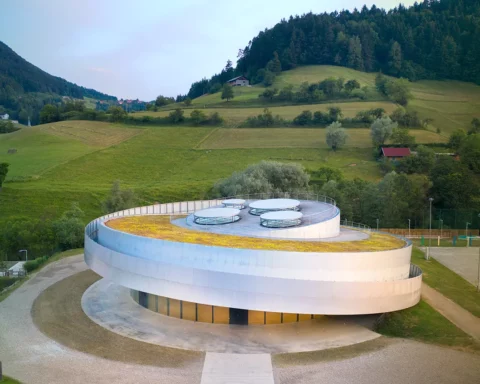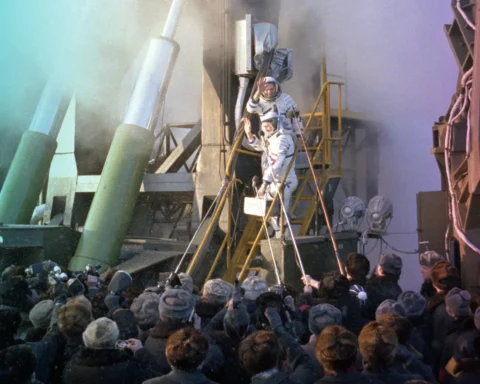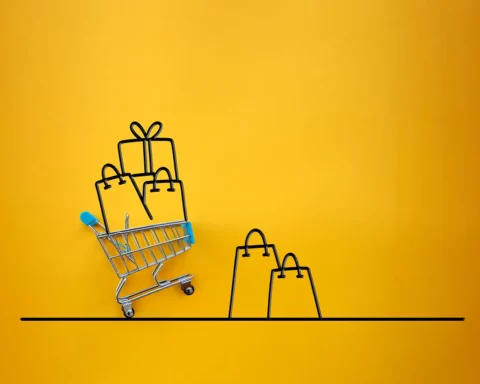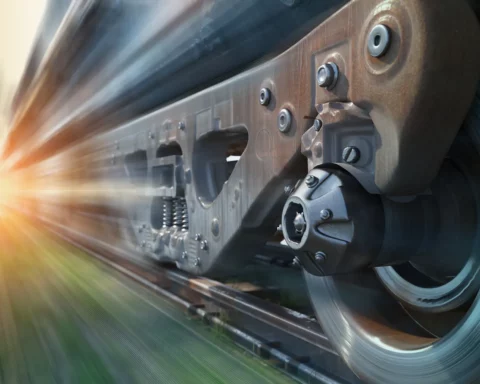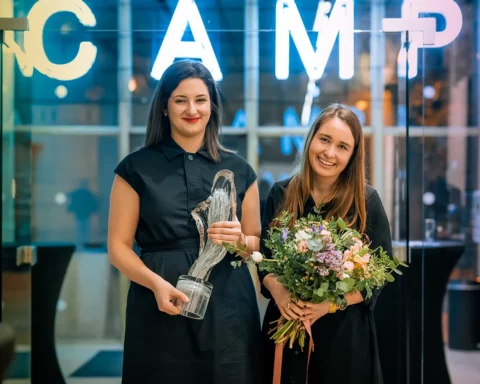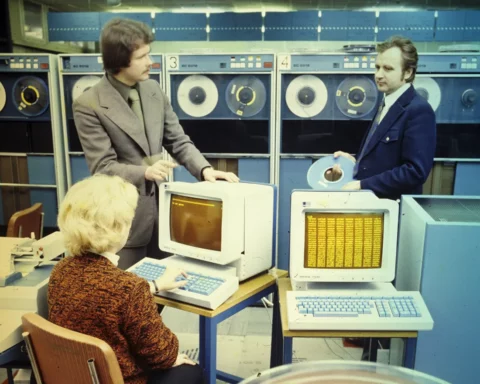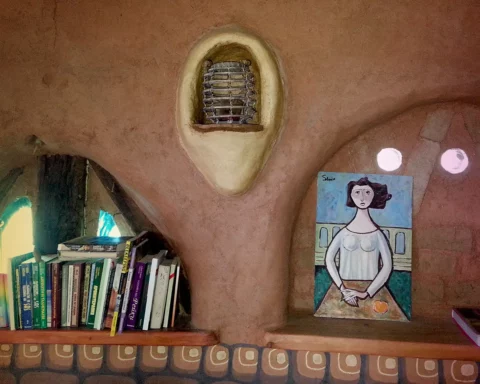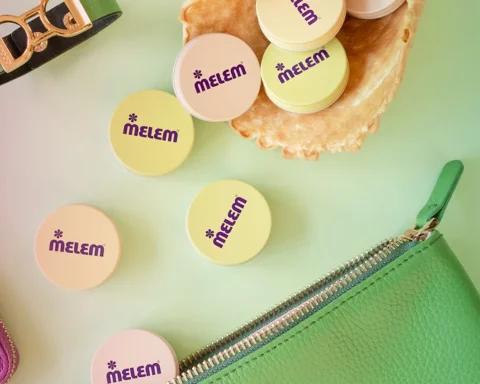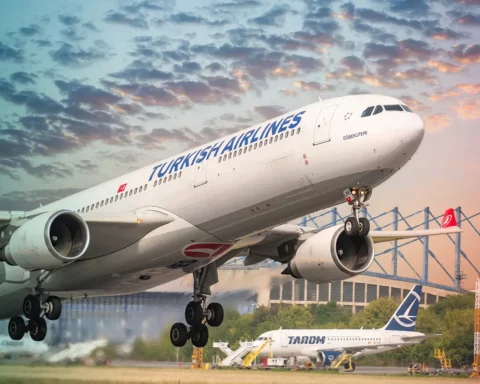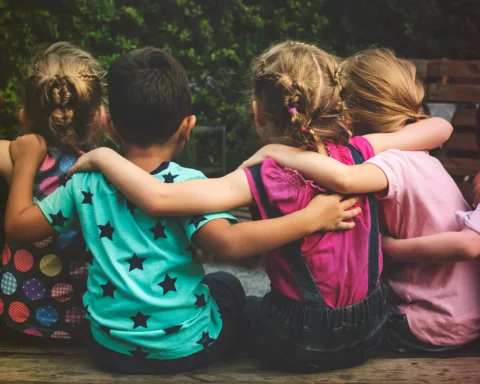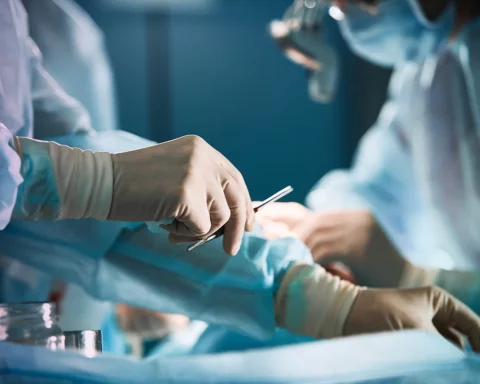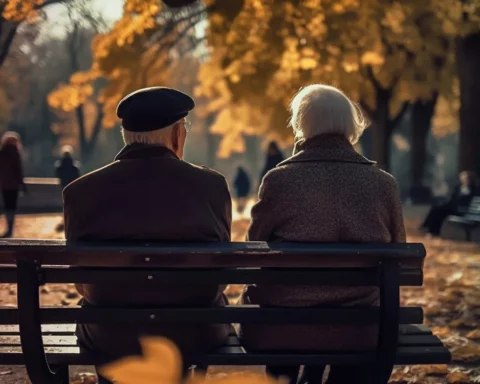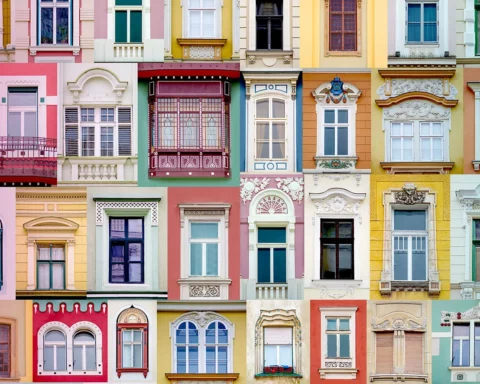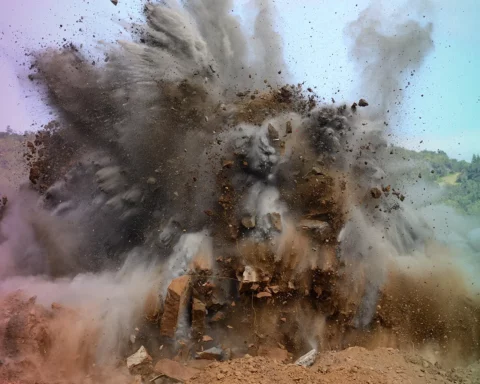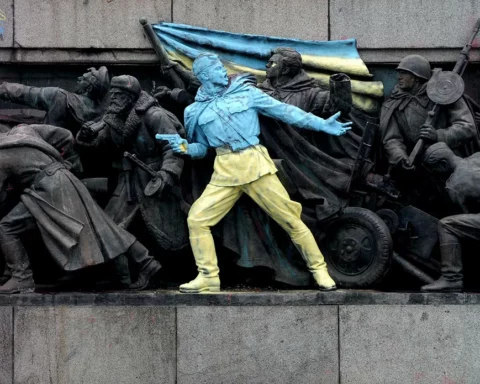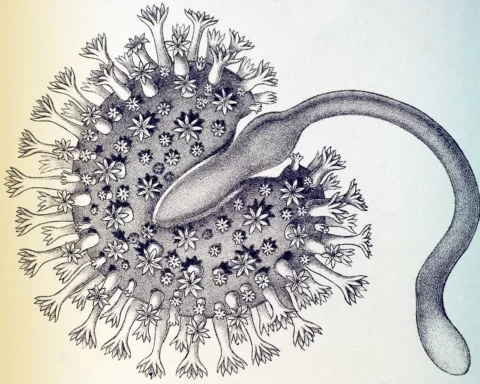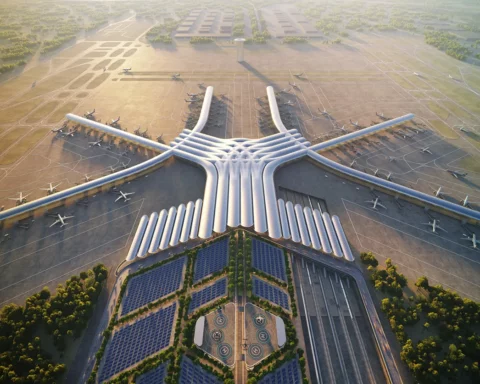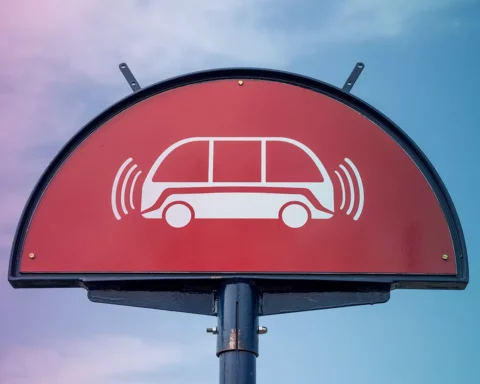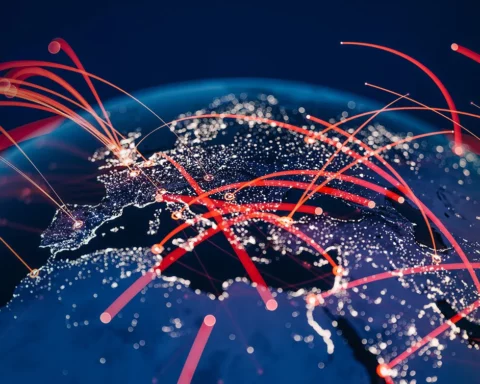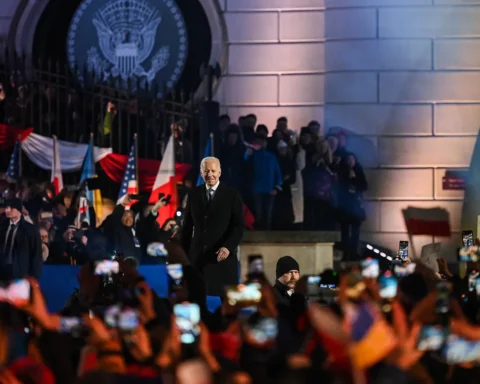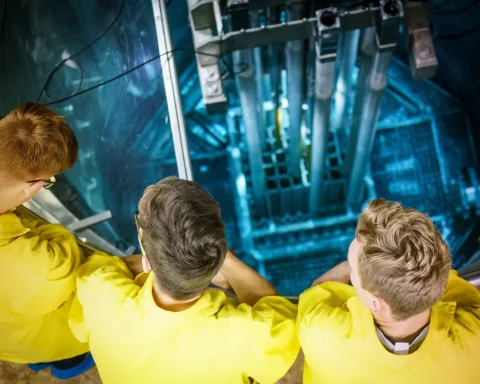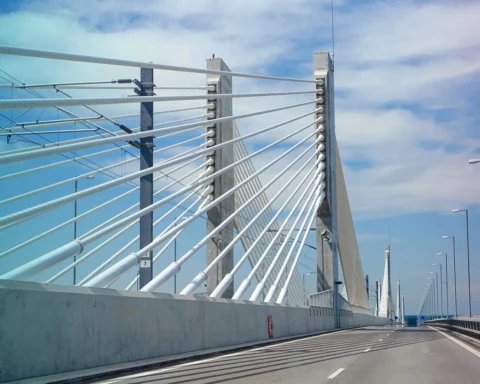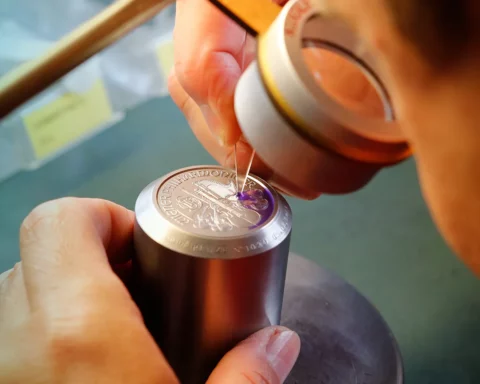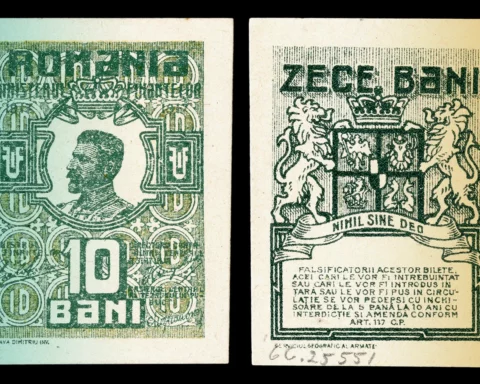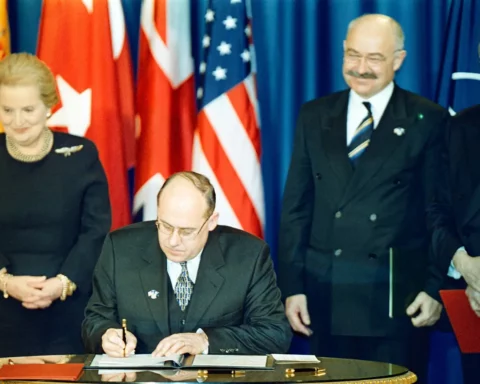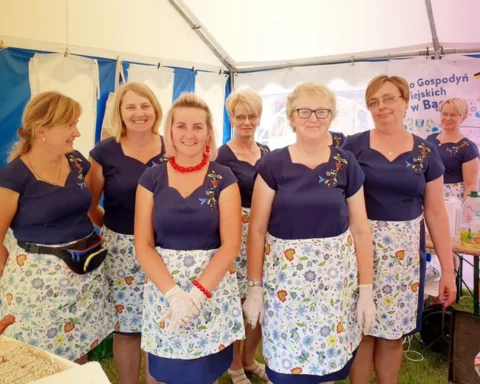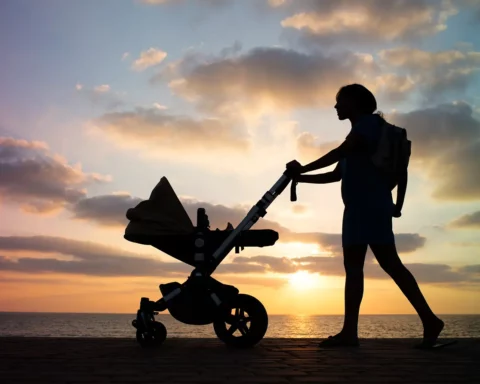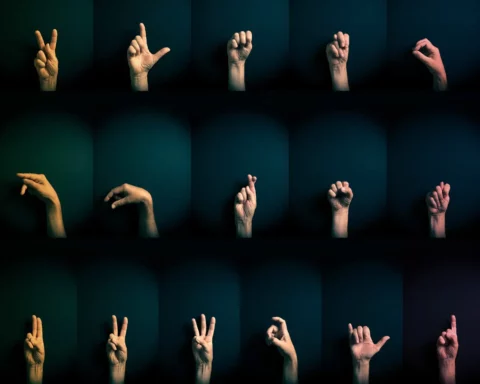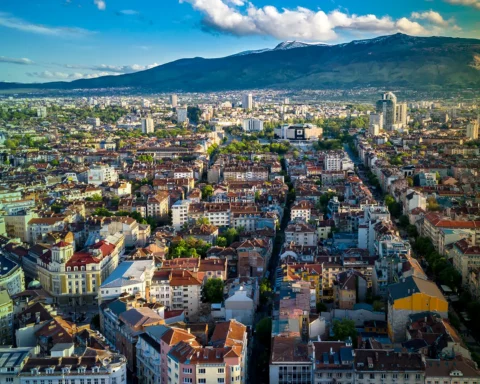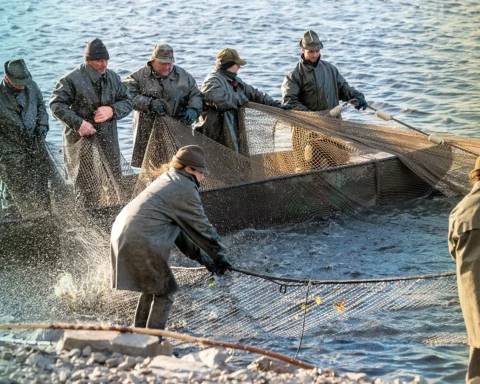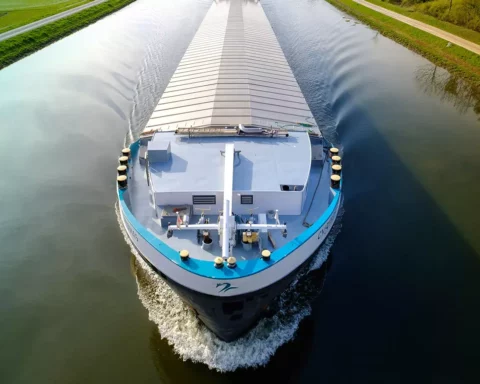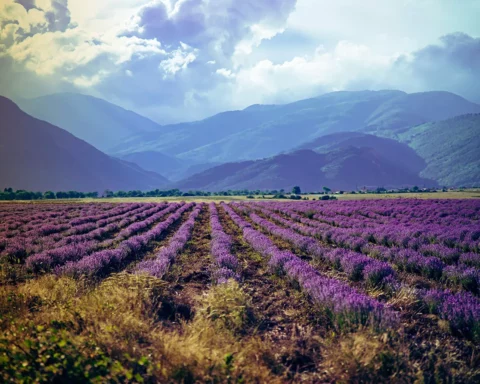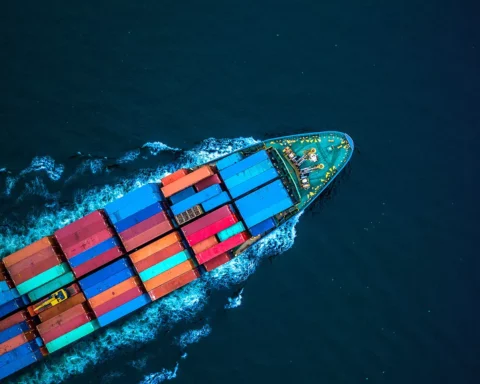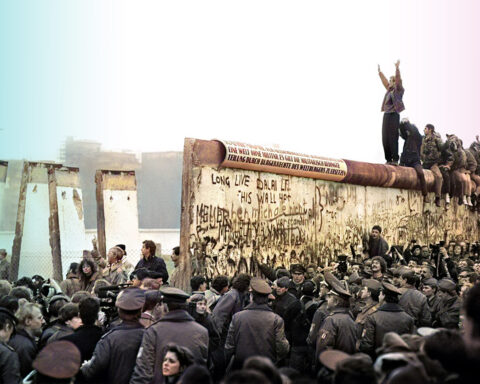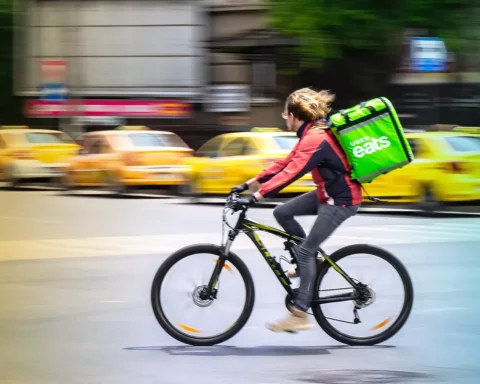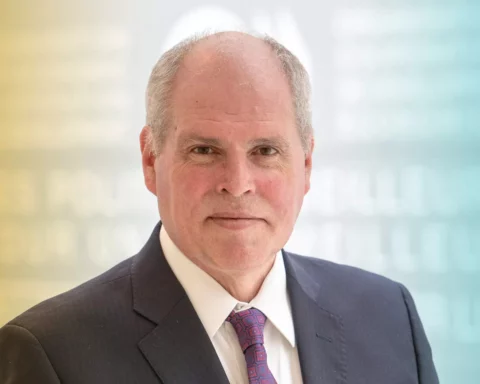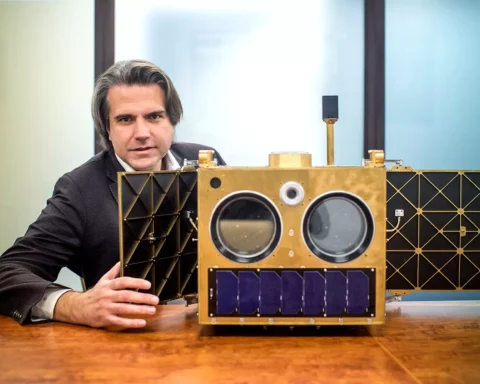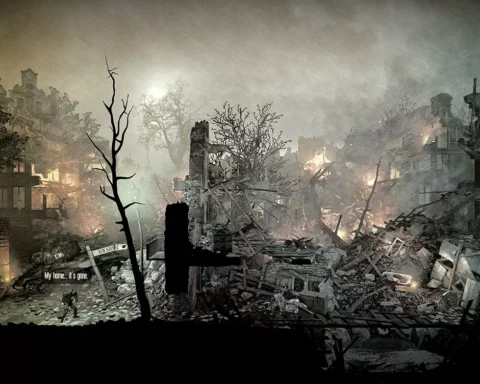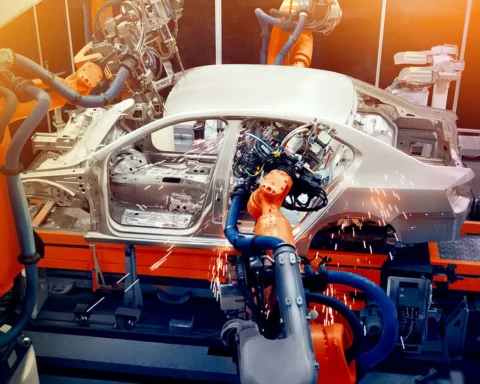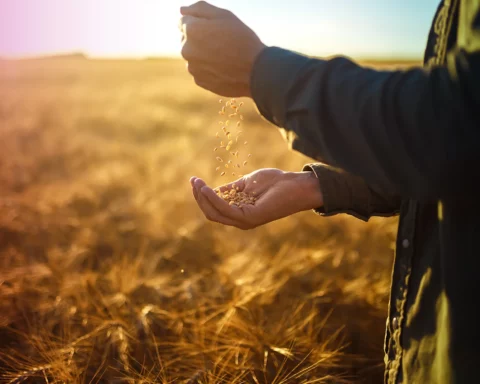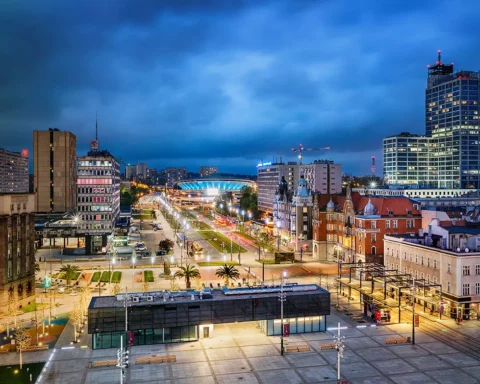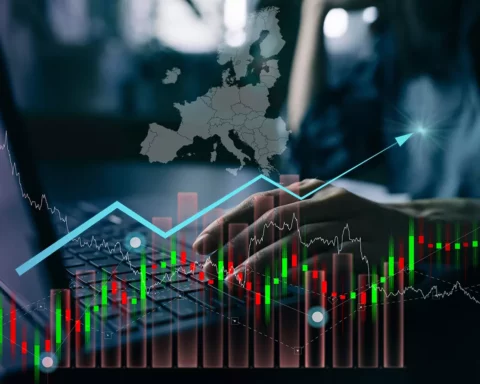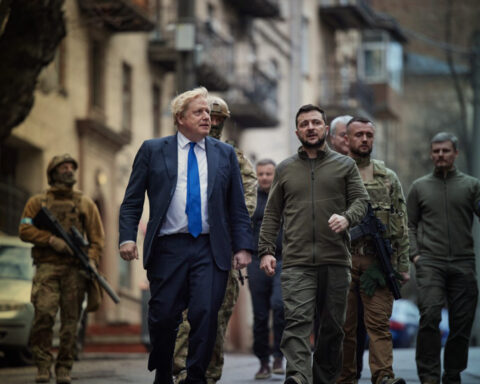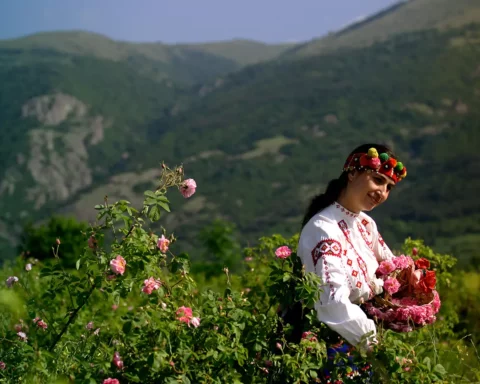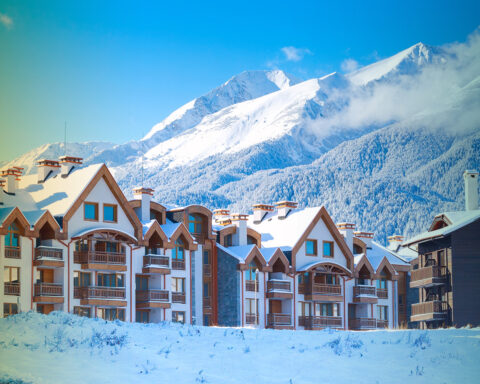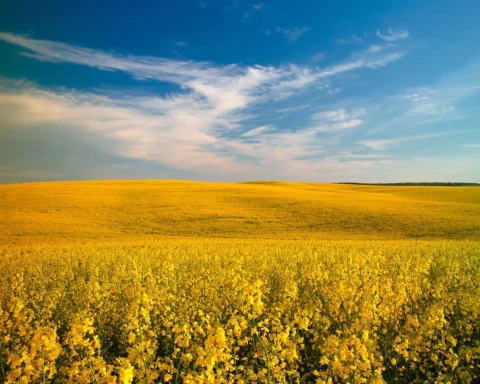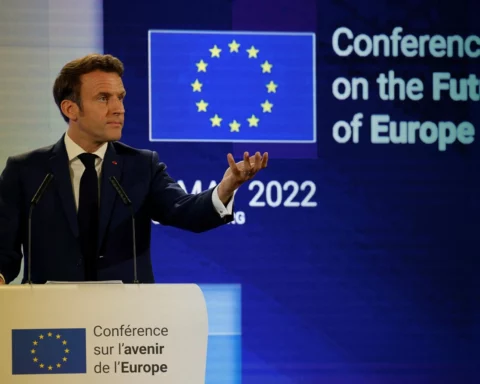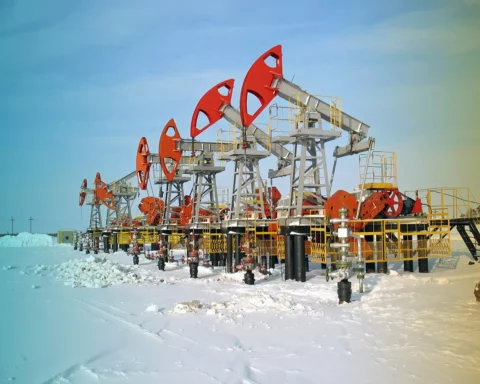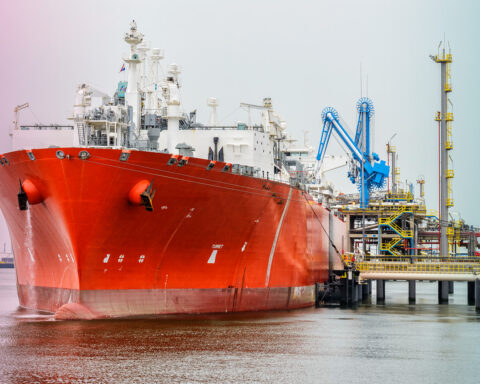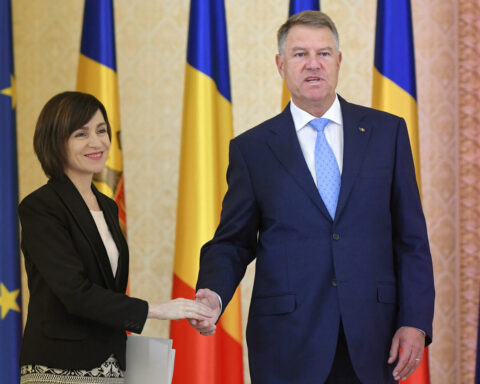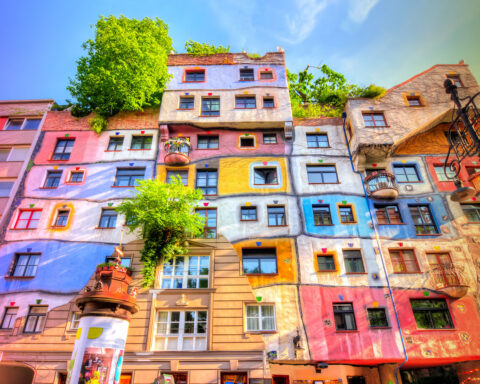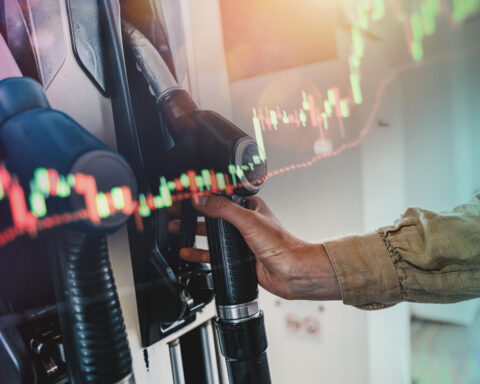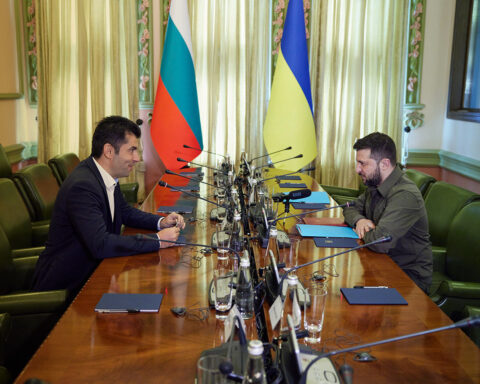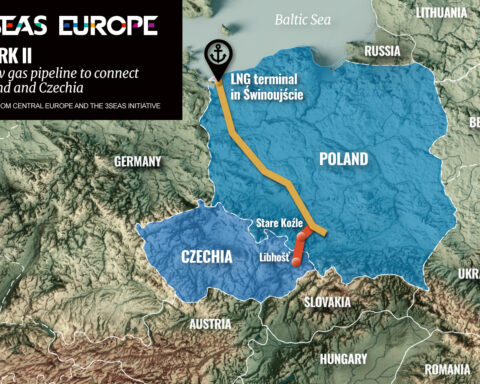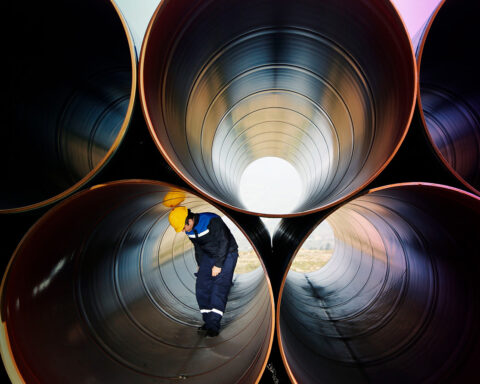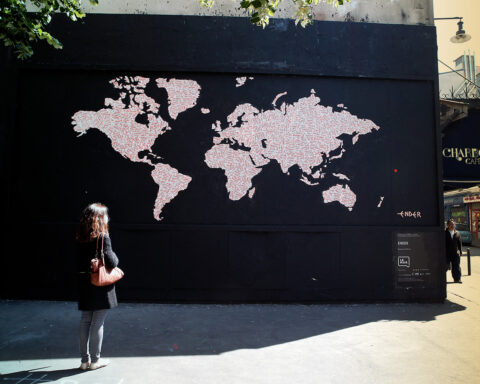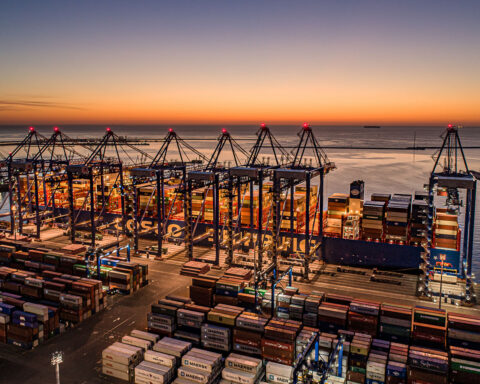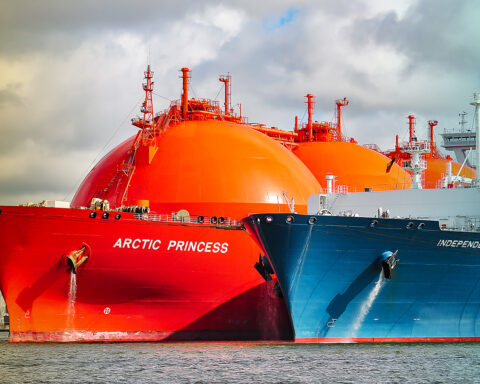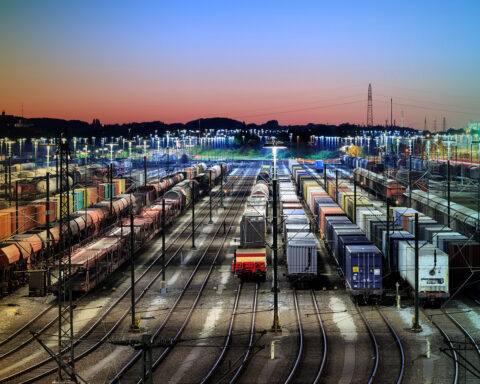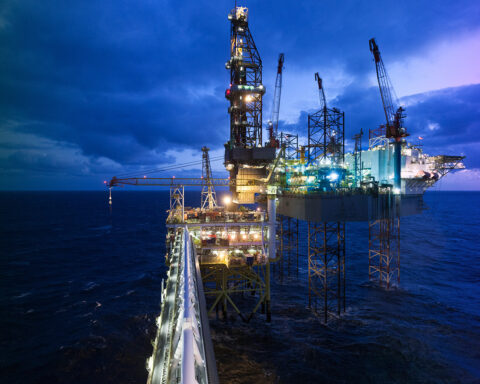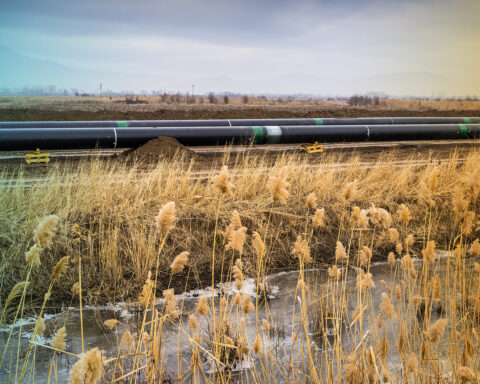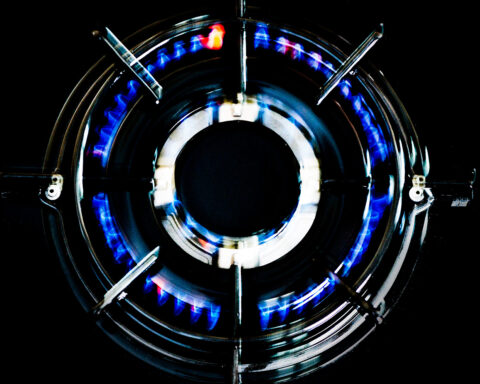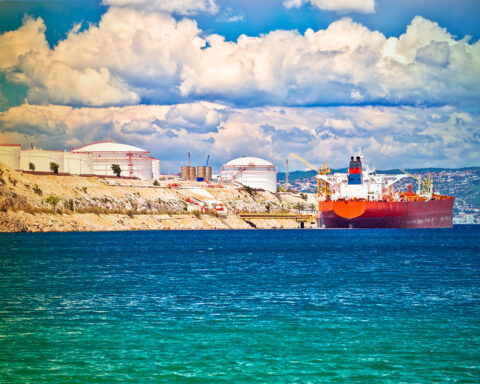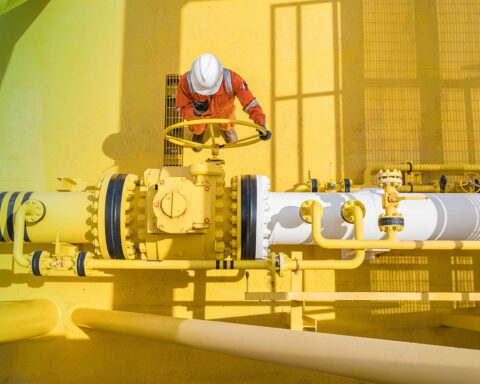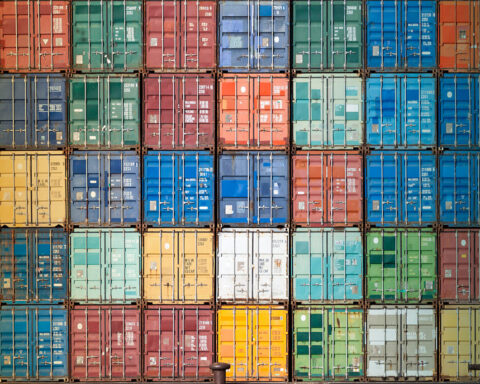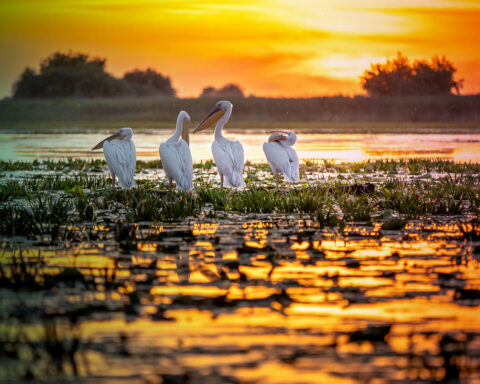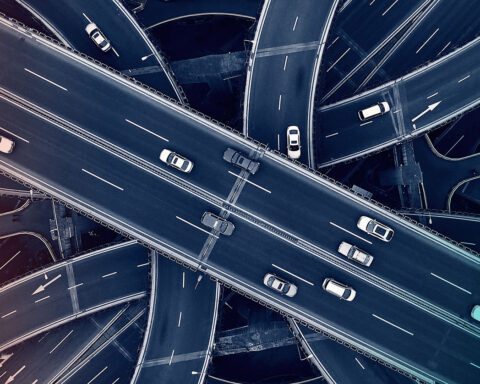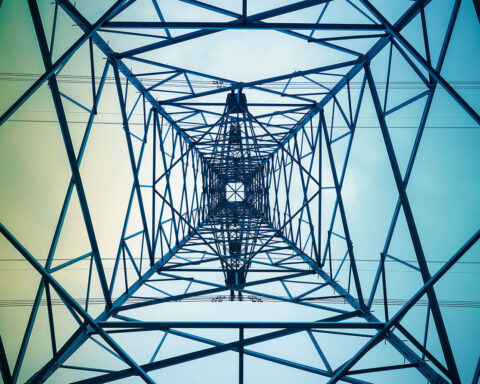No more dependency on Russia for vessels crossing the Vistula Spit.
Read MoreThere are 35 million digital nomads globally. Three Seas Initiative countries are fighting hard to gain a significant share of this community.
Have you ever paid attention to where the drugs your doctor prescribed you come from? If so, you may have noticed that a popular antibiotic for throat infections comes from Croatia.
Lithuanian lasers are very well-known worldwide, with an estimated 10% of world scientific lasers made in the country. This is the story of how a small country has become a powerhouse in innovative laser technology.
After the post-communist transition in Romania, Farmec continues its odyssey. The company continued to innovate from Ana Aslan’s Gerovital, which brought it international fame until it became one of the largest regional beauty products producers.
Croatian car manufacturer Rimac Automobili launched in 2009 intending to make the world’s fastest cars and has been leaving the competition in the dust ever since. The wunderkind behind the company, Mate Rimac, has no intention of slowing down now.
Bucharest has recently unveiled plans to enhance its neighborhood relations with Belgrade in the form of helping Serbia in its aspirations towards joining the 3 Seas Initiative (3SI).
Hungarian company Tresorit grabbed the world's attention in 2013 when it offered hackers a $50,000 prize to the person who could break the layers of defenses protecting their startup. After a year and a half, nobody had cracked the new end-to-end encryption service.
For three years now, residents of the small municipality of Stamboliyski in Southern Bulgaria have been using public transport for free. While the idea introduced by Mayor Georgi Maradzhiev is hardly new, Stamboliyski remains Bulgaria’s only town boasting free public transportation.
Veriff, the company founded in 2015 by the 27-year-old prodigy Kaarel Kotkas, provides technology that enables online identification through a simple selfie and is quickly taking over new markets.
In September 2022, The Three Seas Initiative Investment Fund (3SIIF) acquired a significant interest in BMF Port Burgas, a major port operator in the Port of Burgas on Bulgaria's Black Sea coast.
The Lithuanian online marketplace for second-hand clothes has quickly outcompeted other giants such as eBay and Amazon.
The sidewalks of Tallinn bustle with people going about their daily lives. They are also full of adorable, 6-wheeled delivery robots ferrying take-out and groceries to hungry patrons. A strange sight to some, here, it's just a part of daily life.
Standing on the street corner, you see a car pass next to you on the road. With a glance, you see a winged arrow logo - a clear sign of a car manufactured by Škoda, an automotive company based in Czechia, which sells cars across the globe.
Eponymous with both luxury supercars and the designer of the Beetle, the most renowned democratic car of the first half of the 20th century, Ferdinand Porsche is the most important Czech-Austrian contribution to automotive history.
Printify has spearheaded the quickly growing print-on-demand market, helping regular people to become merchants selling unique products while avoiding storage costs and risks associated with unsold inventory.
One of Uber’s main rivals started off modestly, but quickly turned its creator into Europe’s youngest founder of a billion-dollar company.
One revolutionary Latvian company has improved the gaming experience for hundreds of happy customers around the world. With Azeron's ergonomic keypads, gaming is more comfortable.
The debate seems never-ending: to accept the Euro or keep the Czech Crown? What do Czech people, economists, and politicians think, and is the Czech Republic to get the common currency of the EU?
For several years, the Czech Republic has struggled with the label "montovna" or "assembly plant." What does it mean to be an assembly plant, and how do we eliminate this label?
There are many things the Czech Republic is very well known for, one of them being Czech Glass. To be more specific, Bohemian Crystal. The production of Bohemian Crystal, from the Bohemia and Silesia regions, is a rich centuries-old tradition that is still thriving today.
LNG terminals and pipelines allow for non-Russian gas to flow into Europe: Here's how Greece is rising to the challenge of supporting the EU's energy independence in critical times.
Businessman, Olympic athlete, or polar explorer. All of them are dressed by Czech companies. And as the old Czech song says: "It's an age-old truth, clothes make the man."
How a Slovenian crypto-exchange led to the rebirth of a legendary lakeside hotel.
With residential prices on the rise, Athens is still attracting foreign buyers. Exactly what is it that keeps them coming?
A battle over payment cards will forever mark the summer of 2023 in the Czech Republic. Is paying by credit card a fundamental human right, or is the saying that "Cash is King" still true?
The success of Polish eCommerce delivery provider InPost has rewritten the map for deliveries in Poland and beyond, with Automated Parcel Machines becoming the go-to choice for people who want to be able to receive packages at all times and without having to pay a fortune.
Greek Startup Orfium promises to reorient music distribution back toward artists, giving them a higher proportion of royalties. Artists will appreciate the better deal, but can the new platform get enough listeners to make it pay?
Despite initially being banned in some countries, Red Bull is now Austria's most valuable brand.
Can Bulgarian fashion designers make a name for themselves in Europe and beyond? 3Seas Europe sits down with some of the Bulgarian designers determined to create in Bulgaria, no matter the various obstacles.
Picture this: a world where you can launch your business online, navigating the digital landscape with ease, in just about 15 minutes, no matter where you are on the globe. That's the kind of freedom Estonia has offered since 2014 with its groundbreaking e-Residency initiative.
Looking for a country offering a life-work balance that satisfies your needs? If you live in the 3 Seas Region, you might already be living in one.
Hungary, traditionally not known for its aviation prowess, makes a significant mark in the global aerospace sector with Magnus Aircraft Fusion – an ultralight aircraft, showcasing the nation's innovative potential and dedication to advancing aviation technology.
How strong is your 3Seas region country passport? Very.
Polish startup Vasco Electronics has been actively improving upon its technology for the past 10 years. Its device translates conversation, text, and speech into more than 70 languages and is sold all around the world.
Praised for its response to the aftermath of its debt crisis, Greece has been making steady progress in managing economic and fiscal challenges.
The impeccable style of Kate Middleton, Duchess of Cambridge, has been well-documented. But a closer look behind the scenes at Eponine London, one of the high-end brands favored by the Duchess, unexpectedly takes us to a sleepy Bulgarian town of 12,000 people.
Looking at the map of rail connections in Europe, you can still see the Iron Curtain on it. But there is a chance that it will be gone by 2030, and CEE countries will have a network of high-speed rail links.
Entrusted by over 2000 schools and childcare centers from over 25 countries, Kinderpedia provides a solution to digitally increase educational management and engagement, making school easier for all parties involved – students, teachers, and parents.
Amanita Design’s hit series Samorost, “Machinarium”, and the slightly lesser known “Botanicula” draw from multiple sources of inspiration, including Marcel Duchamp’s Readymades. But they also capture the spirit of Eastern Bloc cartoons, such as “The Little Mole” and “The Tales of Moss and Fern”.
By combining lessons learned from his time in Sweden and Japan, Péter Árvai returned to Hungary and took the position as CEO of what would become one of the world’s largest visual communications software companies.
Czechia is a car manufacturing powerhouse. But how about Czechs? Do they drive domestic brands, or are they more internationally adventurous?
Klaipeda is the main port of Lithuania and the second largest in the Baltic Sea by tonnage. Around 40 million tons of cargo are shipped here annually by almost 7,000 vessels that begin or continue their journey in this hub.
The Czech Republic is currently planning several "super projects." One of them is the Gigafactory near Plzeň. How are the preparations going, and what is the public's general consensus on the projects?
The National Strategy of Research, Development, and Innovation, meant to help transform Slovakia into a country branded by innovation, was recently approved by a government directive. It promises to significantly increase economic wealth and standards of living for the future.
The office market in Sofia has been spared from the worst impact of the COVID-19 pandemic. The feared decline in demand for office space didn't manifest itself but are all threats out of the way?
The region has been becoming a more and more desirable location for venture capital firms. The region is successfully attracting foreign investors as well as generating investment on its own.
When it comes to electric cars' popularity in Bulgaria, the numbers don't look impressive yet. But nevertheless, the signs that a shift might be on the way are starting to appear.
While Europe focuses on how long Romania and Bulgaria will be kept on Schengen's waiting list, little attention is paid to its unforeseen effects.
The incomes in the hands of the people in CEE countries coincide with the declared economic capacity of their homelands more than in Western European countries.
Following a complicated transition, CEE economies veered from centrally planned to free market systems. This shift reorganization created some of the EU's most dynamic and complex economies and positioned them in the global spotlight.
In response to the outbreak of war in Ukraine, Slovakia created a special stipend program to help students and academic researchers fleeing from Ukraine to integrate into the Slovak research ecosystem.
On 22-23 September in Warsaw, dozens of speakers, 50 young innovators from the region, and hundreds of guests came together for panel sessions and dedicated workshops.
Recently, the digital and tech sectors have grown exponentially across the CEE. With the pandemic accelerating the transition, the region stands to gain EUR 200 billion in GDP by 2030 from these industries. Yet, pursuing this revolution might not be as easy as it seems.
With a growing startup scene that has already launched global firms like Skype, Bolt, Bitdefender, Wise, and Vinted, CEE has some lesser-known places where Europe's unicorns or "soonicorns" are thriving.
Central and Eastern Europe have the OECD's lowest wealth gap, with six of the top ten most economically equal countries being 3Seas nations. Why is this, and what are the benefits for society?
The Czech government is getting ready to update the National Energy Strategy. Even though the last one was published in 2015, many things have changed since then, and everyone is awaiting the updated version.
Out of the progress and development that came out of Slovakia during the Covid-19 pandemic, the Q-Vent portable ventilator has caught the attention of many. It has since been further developed and put to use in a remote region of Kenya.
After years of declarations, studies, negotiations, and public procurements, Cluj-Napoca signed a EUR 2 bln contract to build Romania's second metro system (one of the few new ones in CEE).
In a bid to revamp its mostly uncompetitive road system, Romania seeks to spend more than EUR 20 bln in the upcoming years on ambitious interconnectivity projects to freshen up its infrastructure. When these will turn from ink into concrete remains to be seen.
Digitail is the Romanian veterinary software bringing to the animal kingdom what the health system has already implemented for humans – an entirely digital, independent, and complete management solution.
The fDi Insights report on the best and the brightest investment destinations is out. Let's see where we stand in terms of the 3Seas Region.
Telerenta is now bringing parts of Central Europe the possibility to rent electronics (like smart TVs) instead of having to purchase them outright, making the dream of having the latest tech at your disposal a reality.
This past May, something big happened at a sleepy airport in Balchik, in northeastern Bulgaria. Dronamics, a Bulgarian drone developer dubbed "The World's First Cargo Drone Airline," successfully completed the first flight of the Black Swan, its unmanned aircraft.
Long gone are the days when making a beloved mix tape involved hours of sitting at your computer trying to download a single song that half the time still ended in an error message. You can thank a genius Croatian invention born from a master's thesis for that.
The war in Ukraine showed all the European countries how vulnerable their plans and infrastructure were. Czechia was no different, so it is now revising its crucial security strategies.
The most well-known wafer biscuit in Slovakia is undoubtedly Horalka, which has reigned supreme for almost 60 years. With a recipe still under lock and key, the sweet treat has won the hearts of many across the world.
The labor market of Central European countries is doing better than in much of the EU. In addition, it is proving highly resilient to unforeseen crises.
The gender pay gap is a topic that has been upsetting the public in recent years. What is the situation in the Three Seas Initiative countries, and is the region better off than the rest of Europe?
Almost a century ago, Slovenian engineer Herman "Noordung" Potočnik published his innovative concept for long-term human habitation of space. As is often the case with visionaries, hardly anyone took him seriously at first.
With the last decade of Bulgaria's residential real estate market being marked by steady price increases, many buyers remain surprisingly calm. Why? Because they don't plan on taking up a mortgage, to begin with.
Bertalan Farkas (Hungarian), Mirosław Hermaszewski (Polish), Vladimir Remek (Czechoslovakian), and Franz Viehböck (Austrian) were among the first astronauts, or cosmonauts as they were called in the Soviet space program, from Central Europe.
Value-Added Tax (VAT) is the most common source of government income worldwide. What is the VAT situation in Czechia and the Three Seas Region, and can the proposed Czech changes ignite a VAT revolution?
Driving European progress, the Three Seas Fund's subsidiary, CARGOUNIT, supercharges its expansion with a game-changing locomotive lease to Romania's Unicom Tranzit.
Finally! It's hard to believe, but the Polish administration is increasingly relying on digital solutions. The idea of GovTech is breaking the typical bureaucratic inertia in innovating and digitizing the public sector.
Raising over $5 million on Kickstarter, Bird Buddy - a gamified, AI-powered bird feeder - was in the top 1% of all campaigns. A new nation of armchair ornithologists has been inspired.
The next World EXPO is approaching fast. This time Osaka, Japan, will host it. What will Czechia present to impress the land of the rising sun with?
Bulgarians and Romanians are the two nations that are the least likely in the EU to be absent from work due to sickness, data from Eurostat reveals. Exemplary work ethic? Sadly, the explanation lies elsewhere.
A consequence of the war in Ukraine will be the need to increase defense spending. Central European countries are already starting to understand this.
In the second half of the 20th century, Poland was an IT rarity in the Eastern Bloc. Under the conditions of a centrally planned economy, Polish engineers created successive generations of industrial and personal computers from scratch.
A quick Google search produces promising results: Bulgaria is not lacking in eco-friendly houses. Yet, Bulgarian architects devoted to promoting sustainable architecture say, “Not so fast…”
Bulgaria is not exactly known for its high fashion, and yet, browsing through the offerings of high-end brands in Paris and Milan, the country surely pops up a lot. Especially when it comes to ever-present Made in Bulgaria labels.
As recent geopolitical and economic realities in the Danube River and Black Sea regions changed, a new dawn for Romania's ports emerged. With increased flows came the need to swiftly expand, adapt and explore potential growth trajectories within the region and globally.
A-frame vacation homes, named after the Brda River in Poland, became popular in the 1970s. The project was so ingenious though that modern architects eagerly returned to the foundations of the idea.
In the last few decades, the idea of a skincare routine has become increasingly popular. Effective products based on natural ingredients are especially valued. And which multi-functional product hides the secret of the Croatian skincare routine?
A new high-speed railroad will connect the Bulgarian city of Ruse with Romania’s capital, Bucharest, bringing passengers, trade, and hopes for more positive developments linking the two neighbors.
Understanding of countries from Eastern Europe is more often seen in the countries of the central part of the continent than in other regions of the EU.
Countries across the Three Seas region are steadily improving their proficiency in foreign languages, with Croatia and Poland placed among the top European countries when it comes to knowledge of English. But, the region is not done yet.
In Central Europe - much more often than in Western Europe - more people affirm Kundera's view that "The child makes us care about the world."
A tragic accident left a 15-year-old girl with no arms, but Romanian doctors succeeded in reattaching both, performing a rare, almost impossible 20-hour surgery - the first bilateral arm reattachment surgery in Romania.
Ten years, ten editions, and over 100,000 visitors. These are the stats of Central and Eastern Europe's most influential comic book convention in numbers. But what does it like behind the doors?
Central European countries are increasingly aware that developing their own IT capabilities will determine their position in the modern world.
Since 2016, Romania has sat at the top of a very important poll regarding equality in the workspace. What is Romania's secret to achieving a nearly zero gender pay gap, and what is the reality?
The Czech population is gradually aging, and pension reform is nowhere in sight. Will the state be able to cope with the wave of pensioners, or will the title of the Cohen brothers' film apply: "No Country for Old Men"?
With over 95% of the population owning their homes, Romania leads Europe - and possibly the world - in home ownership. How did this happen, what role did communism play, and how is the trend still going strong, even 34 years after the fall of the regime?
Bulgaria hasn’t been blessed with limitless supplies of natural gas, but the country is still looking to play an important role on the gas market.
An inconspicuous product from the Czech suburb of Pardubice became the terror of the whole world and was the basis of the armament of the entire Eastern Bloc. What is the story of Semtex?
The countries in the Central European region are very serious about economic freedom and supporting entrepreneurship. This is confirmed by the Index of Economic Freedom.
The question was popped, and the answer is yes. Now what? For many Bulgarian brides-to-be, this question has an easy answer, at least when it comes to finding a bridal gown. It involves a road trip to Asenovgrad, a town in the south of Bulgaria.
Czechia has one of the lowest unemployment rates in the whole EU. Is it a curse or a blessing in disguise?
The attitude to history very much distinguishes Central Europe from Western Europe. The war in Ukraine means that these differences will remain present for many years to come.
A group of scientists from Brno has made a revolutionary discovery. What sounds like science fiction is within reach: light without electricity!
Two years ago, there were claims that the Polish Solidarity Transport Hub was unnecessary since the infrastructure of Western Europe is sufficient to transport people and goods over long and short distances. It turns out that the opposite is true.
Dreams of future coastal cruising along the beautiful coast of the Black Sea.
For the last three years, two driverless buses have been operating on the outskirts of Vienna. The project has so far been a success and a source of inspiration for other potential models in the 3 Seas region, as well as elsewhere.
Slovenia has renewed its interest in playing the role of gas hub using the same resources that were abandoned in 2012 due to economic reasons in favor of cheap Russian fuel.
Central European countries are successful in attracting investment from abroad. But they are also increasingly becoming exporters of capital for investment themselves.
The past year of the war in Ukraine was also a year of forging an awareness of the common destiny of Central Europe.
The growth rate of e-commerce in Central Europe can be seen as a kind of litmus test for the quality of cooperation in the region.
Unbeknownst to the majority of people filling the streets of Prague, there is a nuclear reactor in the center of the city. What does it do? Is it dangerous? Or is it a future of commercial use of Small Modular Reactors?
Bulgaria and Romania share 609 kilometers of border. And yet, despite the fact that the Danube River forms as many as 470 km of that border, the two countries are linked only by two bridges. Is this about to change?
Many countries have their own versions of one-ounce gold coins treated as a form of investment. But globally, the most important commemorates Vienna’s dedication to music.
The people of Central Europe dream of becoming ordinary, average inhabitants of Europe, its middle class. This dream is driving CEE countries - but it is also coming true more and more.
Three Seas countries are attractive investment destinations for global corporations. Can it also result from the fact that people in the region can work longer hours than their Western European counterparts?
CEE countries keep their taxes lower than Western states. In this way, they effectively bridge the gap in economic development between the two parts of Europe.
We know – pockets are getting smaller, and wallets are only becoming heavier. This would be no problem for the world’s tiniest print money – which measured a mere 27.5 x 38 mm. How much could you fit in your pocket?
Bulgarian businesses need more help from foreign workers. As challenges persist, how can Bulgaria fix its labor shortages?
People living in Three Seas countries are much less prone to taking loans than citizens of Western European countries. This division is so strong that it goes beyond simple economic choices.
Central Europeans have bigger trust in international institutions than in their own national ones. The best evidence of how slowly social stereotypes evolve.
Households in our region have to allocate relatively high shares of their budgets to basic needs. Their ability to buy non-essential items is limited. The consumption structure in our area will converge to the western European average in line with closing the income gap.
Flying to Bulgaria is easy, but that is not exactly the case when it comes to flying within the country. But work is underway to add six much-needed small facilities to Bulgaria’s minuscule airport network.
The countryside is the bread and butter of every nation. Undoubtedly, a vast part of Polish cultural heritage originates in Polish villages and fields. It could not be so if it weren’t for the women!
Those traveling to Europe often think it will be sufficient to bring along some Euro, but this is not always the case. So what currency do you need when you find yourself in the Three Seas States?
The new railway network will connect all of Poland’s larger cities with a mega-airport near Warsaw as well as connect Poland with neighboring countries.
Households in Central & Eastern Europe are still in the process of building financial wealth. It makes these economies vulnerable to adverse shocks, but it also makes the region an attractive investment destination.
The Czech Republic has recorded a gradual increase in the number of children born in the country - proof that an effective pro-natalist policy can be pursued. It seems that the key is maintaining respect for the value of the family.
While Bulgaria hasn't exactly been the first country to come to mind when one thinks about the most fertile ground for startups, that is all about to change.
Hungarian-American startup SignAll has been intensely working for over a decade to invent the SignAll Lab tool, which translates American Sign Language (ASL) into American English.
The Hungarian startup SEON Technologies, currently based in London, has introduced an app that determines the risk of online internet profiles. The product became very popular among companies and casual users as the world went online during the Covid-19 pandemic.
Bulgaria might not be known for its fashion brands, and yet one local company is keeping Europeans fashionable.
Generation after generation of Bulgarians was raised with eyes on the prize: Owning a home. With prices in Bulgaria reaching new heights, has the time come to let go of that dream?
Fish farming in Czechia has a tradition dating back to the early Middle Ages. It helped the landlocked country to secure enough fish supply. What started as a food variety necessity became part of national identity and Czech culture.
The Danube-Oder-Elbe water corridor is the missing link that would connect Czechia to the rest of the European waterways. This multifunctional water project could raise the global importance of the Three Seas Region in the World Economy.
Beautiful lavender fields are the perfect Instagram photo-op. Just pay attention to the location tag: You’re not in the south of France but in Bulgaria. In fact, lavender is so prevalent in Bulgaria that it has been competing with France for years now for the title of top producer.
Over the last several years, the Three Seas countries have seen astonishing success in exports. In order to continue that success, what is needed now is diversification.
CEE countries lost almost 50 years stuck on the wrong side of the Iron Curtain. Although the Berlin Wall fell more than three decades ago, they still have not managed to make up for the years wasted by communism.
Countries with the right balance between services and manufacturing economies are more resilient to various shocks. This is the lesson from the crises in the last two years, and Central Europe has done its homework.
3SeasEurope sits down for an interview with the Deputy Secretary-General of the OECD Jeffrey Schlagenhauf.
Innovativeness is a glamourized factor that is supposed to cure all the economic problems of the countries and the world. But do all countries need to be innovative to grow their economies?
Most of the Three Seas countries are not heavily indebted. However, they are importers of capital, which must be taken into account when making economic policy decisions.
It would be an understatement to say that Polish company Creotech Instruments has been moving at light speed since its founding in 2012. The company has grown from startup to space giant in a mere decade, with plans to go public on the Warsaw Stock Exchange this summer.
Central and Eastern European countries observe relatively low rates of unemployment, which are generally lower than in “Old EU” countries. While this might be seen as a success, the reality is not as optimistic as the data suggests.
The RPG game “This War of Mine” about civilian life in under-siege Sarajevo was the first videogame in the world to ever make it into school curriculum.
Central European countries have become hubs for the automotive industry in recent years. Now, we are entering an era of turbulence when traditional business models will be deeply reshuffled, creating challenges and possibilities in the automotive sector.
For many years, post-communist Central Europe could only watch other regions of the world prospering thanks to the rapid development of the digital market. Oh, how times have changed.
A vital part of Romanian-Polish trade depends on the automotive industry. Consequently, the automotive industry's evolution and how the two countries adapt to industry transformation will significantly influence the future trade structure of goods between the two countries.
One of the global challenges related to the Russian invasion of Ukraine is food security. Are Three Seas countries food secure?
With two million citizens and a whopping 1.5 thousand kilometers squared, the Silesian Conurbation is a much larger urban area than the Polish capital – Warsaw. It consists of multiple cities that grew to meet each other’s borders.
The beginning of the war in Ukraine overlapped with the annual seasonal increase in gas consumption and the diminishing amount of gas in storage. Could a lack of supply of this valuable natural resource mean an unusually cold winter for millions of Europeans?
A report authored by the International Monetary Fund in late 2020 remains the most detailed account of the size of the infrastructure gap between the western and eastern parts of the EU.
The UK may not be an EU member state anymore, but even so, Albion has interests in the region that seem set to strengthen in connection with the increased focused security issues connected to Ukraine and NATO's eastern flank.
Who would have guessed that the Damask rose, brought from Persia through Syria to Bulgaria back when the country was part of the Ottoman Empire, would one day acquire cult status? It's so essential that Bulgaria is even called the "Land of Roses." And for good reason.
At first sight, this village near the town of Popovo in northeastern Bulgaria looks like any other village in the area. And yet, it isn't. Welcome to Palamartsa, population 300, including 120 residents from 23 countries. Is this Bulgaria's most diverse village? Possibly.
Economic relations between Three Seas countries and Ukraine before the war were strong compared to other EU countries. This provides a solid foundation on which future relations can be strengthened.
Nearly all Three Seas states have signed a document warning the EU not to embark on a sudden and underprepared path to EU treaty changes following the recent conclusion of the Conference on the Future of Europe.
At the end of March, Poland announced it would halt imports of Russian oil by the end of 2022, and the European Commission followed suit, proposing a ban on 4 May.
Following Russia’s invasion of Ukraine, countries are scrambling to get their hands on massive vessels that can regasify Liquified Natural Gas into regular gas. These floating LNG terminals will be a big part of the solution when the EU moves away from Russian gas, but will Finland and Estonia be able to put them to good use?
Support in Moldova for their state to unify with Romania has increased significantly in the past few years. If it became reality, it would result in the first merger of two states since the 1990 mergers of Yemen, followed by Germany.
Thanks to significant economic growth in the Three Seas region over the last few decades, housing prices have risen accordingly. In today's housing market, where can you find the best deals, and which cities are the most expensive?
Against a background of consumer inflation already on the rise, the Russian invasion of Ukraine has only added more fuel to the fire, driving inflation sharply higher.
The government in Sofia is taking measures to replace Russian gas ahead of the warming season this winter while also helping Ukraine to survive the Russian’s Army’s onslaught in the Donbas.
The Polish and Czech governments have agreed to restart work on the Stork II gas pipeline, a project of key importance to Czechia’s ambition to rid itself of dependency on Russian gas.
The new GIPL gas pipeline has connected Finland and the Baltic states to the EU’s gas transmission system just as Russia cuts off gas supplies for Poland and Bulgaria.
The future of the Three Seas depends not only on the implementation of key infrastructure projects but also on the widespread popularization of the concept itself. However, more than five years have passed since its launch, and its objectives are still not widely known. Why is this?
The Port of Gdańsk, as the leading container terminal on the Baltic Sea, is slowly becoming a key transport hub in the development the 3Seas Initiative (3SI). In fact, the entire Polish coast, with its key transshipment ports. is turning into a so-called Northern Gateway.
Natural gas will now arrive in Lithuania from across the world to a floating regasification unit fully owned by the state.
The Baltic-Adriatic Corridor rail freight corridor will speed up with the opening of two major tunnels.
2022 is expected to be the year in which Romania takes the final step to launch major extraction of Black Sea gas.
The Ionian-Adriatic gas pipeline is entering a crucial planning phase. If everything goes according to plans, Azeri gas will soon start flowing to countries in the Western Balkans and further north.
The construction of the BRUA gas pipeline has received another permit, making it more likely that Europe will be able to increase the diversification of its energy supplies.
For a little over a year, Croatians and others living in Central Europe have had access to natural gas from a new source. Gas shipped in from across the world will help our planet from overheating and provide more supply security.
Ever since European countries experienced a sharp drop in Russian gas supplies through Ukraine to Europe in early 2006, people in Central Eastern Europe have been aware of the need to diversify the imports of natural gas.
COVID has created chaos in global supply chains - but Central Eastern Europe can paradoxically profit.
FAIRway Danube project returns hope to areas around the revered river
More than 30 years after the fall of communism, Central Eastern Europeans will finally be able to travel north and south in comfort.
With the help of Poland, the Baltic States will soon synchronize their electricity grids with that of continental Europe instead of Russia and Belarus.
A reform of EU debt rules is on the horizon, so the question will be in which direction Central Eastern Europe can swing it.


